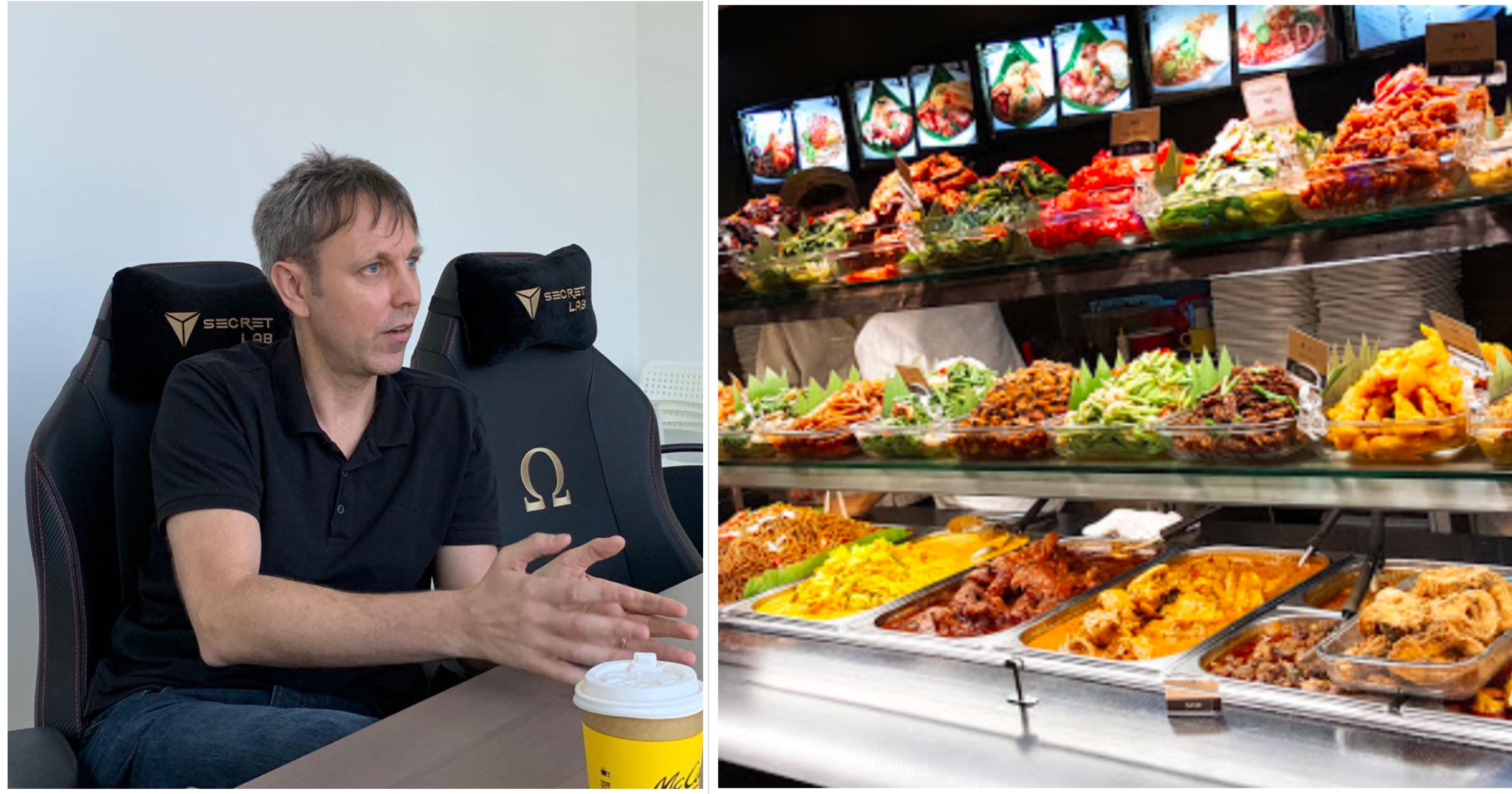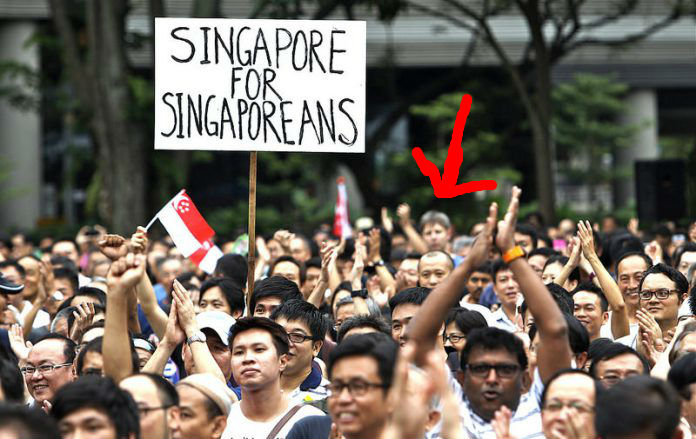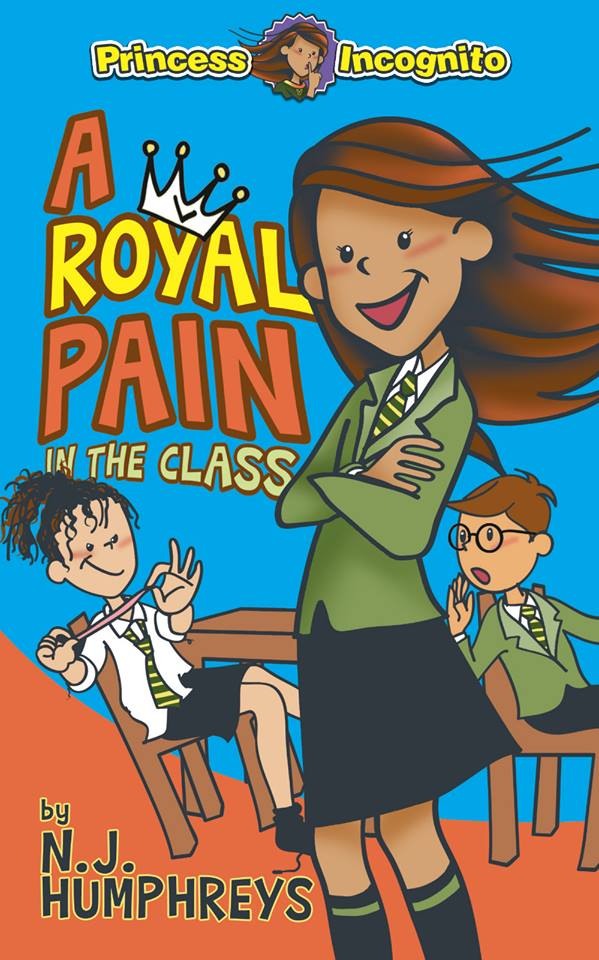Neil Humphreys's latest book is about a princess moving to a dull working class town, and one of his more recent book series is aimed at children, starring a four-year-old protagonist who is handed a magic suitcase.
Very whimsical, child-friendly offerings.
So it seems only fitting that more than halfway through our interview, he launches into a profanity-laden tirade against the food prices at Marina Bay Sands.
The nightmarish single-veg-double-portion cai png
Humphreys was there for his daughter's dance rehearsal, and had decided to grab something to eat at the food court. Since he and his wife are vegetarian, his sole option looked like the economic rice stall, so he headed over there.
Here's a rough transcript of the encounter, as retold by him.
Neil Humphreys (NH): 我要菜 (Chinese for I want vegetables), I only want vegetables right.
Auntie: No, cannot, 不可以. Minimum order. Gotta have two vegetables.
*Sees that there is just one non-meat dish*
NH: You haven't got two vegetables.
Auntie: No, no, must have two, must have two.
NH: *pointing aggressively at dishes* Meat. Meat. Meat. Meat. Fish. Meat. You don't even got potato, like what do you want from me?!
Auntie: Minimum two! Minimum two!
NH: I'll take the same f*cking vegetables twice then, double broccoli and carrot.
And the cost of that? S$6.
"S$6?!?! Ah, what?! Why's this?! You're giving me food that I don't want! Six dollars. Who is this shit for?! (And) it was shit, I nearly threw the food back at her. It was so bad.
But it's not for me. I mean she may think it's for me, because I'm angmoh, but it's for tourists."
Which leads quite nicely to a question many Singaporeans, and Humphreys, might have asked themselves at some point while hanging out around MBS.
Who is all this for?
Class — more specifically, the societal class divide — has long been a topic of interest for Humphreys. His new children's book release sees a princess, Princess Sabrina, having to adjust to life in a working-class town.
Before that, Return to a Sexy Island tackled all the changes that had happened in Singapore during his five-year stay in Australia.
The developments were all very "sexy", but they left Humphreys wondering who it was all for.
A point encapsulated pretty well by his take on Shoppes (pronounced "shops", IKR?).
"The Shoppes, what a shit name by the way, who is this for?? You know, who is it for?? Almost every Singaporean I know, its not for them. It's always empty, but it doesn't need to be full — they only need two or three tai-tais to go in and shop a day and buy shitty handbags."
Humphreys agrees that it doesn't have to be busy, and it should in no way attempt to function as a heartland mall.
But when one sees the Ferrari shop, the shiny mall area, and of course, the S$6 cai png, the question is once again brought up.
"Who is this actually for?"
There is no doubt that these luxury shops provide massive economic upsides, through both tourist revenues and employment opportunities for locals — a point Humphreys readily acknowledges.
But he feels there's a need for something more than economic returns.
A sense of belonging is essential, and belonging is usually cultivated from recognition through repetition, and when that chain is broken or severed, there will be a limbo that leads to a disconnect.
And here's the thing: Humphreys actually does know better than most the effects of this disconnect, having seen first-hand his own country's slide into Brexit (the British exit from the European Union).
Brexit
He explains the disconnect succinctly when describing a recent trip he took home a while back, before Brexit.
He returned to Dagenham, the town he grew up in, and saw the foundations of what would ultimately lead to Brexit.
The most striking aspect for him, he shares, was just how different it had become.
"All the shops of my childhood had changed, into things like Polish news agents, Polish groceries, Afro-Caribbean hairstylists; things like this."
It didn't bother him of course, but the effects of these changes were palpable among the locals — who, by the way, include his family.
"They felt their identity is gone, their Britishness is gone, they're being swamped by foreigners."
We know now that the dilution of identity and concentration of wealth in more urban centers like London led to increased discontent with the ruling party.
That perception of uncontrollable change, in addition to the decline of the industrial economic boom, ultimately led the residents of Dagenham to wonder "who is all this for".
Of course, Humphreys declares, there's literally no chance of us going through a similar process to Brexit.
But the larger point remains, he stresses: people need to feel like they belong, and look towards things that signal they are one of them.
One of us
One of the places he feels this sense of belonging is sorely missing is in the recently-renamed Singapore Premier League, which we're talking about now because Humphreys is also known for writing extensively about it in the past.
Because instead of cultivating a ground-up approach to football, he says they are trying to do far too much.
"We have these stupid things like Goal 2010 — we're gonna qualify for the World Cup, we're gonna sprint like Usain Bolt before we can even crawl."
In short, says Humphreys, to ensure success for the clubs, they must first be identifiable to their community.
Which presents an issue for the Singapore Premier League.
"Balestier plays in Toa Payoh, you've got a team called Home — what does that even mean?! — (that) plays in Bishan... You can't make up these wishy-washy franchises, and give them wishy-washy nicknames, like dolphins or stallions."
To their credit, SPL appears to be trying to fix this, with their latest plan to ensure fewer stadiums housing the teams garnering a larger fanbase gathering at matches.
He gives an example of how clubs can make it work in Singapore, using the example of Hougang, which in his view (and ours too, really) has absolutely nailed it.
"It's not rocket science. You're called Hougang United, you play at Hougang stadium, you're beside the Hougang MRT, the nearest shopping mall is Hougang Mall, you're next to the Hougang swimming complex... Every street around you is Hougang Avenue something or whatever."
Which goes back to the issue of identity.
"The identity is so strong, the Hougang flavour is so strong."
That leads to the inevitable question — why is it so hard to cultivate that identity in Singapore?
"And the thing is, we're bloody masters at community bollocks — yes it's a bit political, yes we know the reasons for it, but we're well drilled. Every amphitheatre in bloody Singapore, every CC, there's always one bloody banner going up."
The short answer, to his mind at least, is that it's just not considered that important to those who can.
"I don't think there is the political will, and there is no public will either".
The angmoh Ah Beng
Now certainly, the issues of Singapore's class divide, rising cost of living, or to a lesser extent, the general state of Singaporean football, discussed by a Westerner might feel a bit jarring, something Humphreys repeatedly acknowledges throughout our interview.
But his position has always been consistent: stand on the side of those who need standing by.
He has spoken up for domestic helpers, ranted at what he considered elitist policies, and even attended the Population White Paper protest.
In fact, here he is at the rally.
Cool.
One might be tempted to say he's assimilated seamlessly into Singapore after all these years — living in Buangkok, walking around Sengkang, and of course, very conspicuously attending rallies.
Just like your average heartlander.
Here's an excerpt on assimilation from an article he wrote called "Beware the Brexit":
"Assimilation is more than the odd visit to the hawker centre to get down with the heartlanders. It’s not a BuzzFeed list of the top 10 chicken rice stalls, a day trip to Little India or clumsily shoehorning ‘lah’, ‘leh’ or ‘lor’ into sentences.
It’s a way of life. I live in Singapore so I live like a Singaporean, no more, no less. To live any other way would be artificial and contrived. That’s what expat bubbles are made of."
And he's had more than two decades, more of his life spent living here than in England, of assimilation in Singapore to point to.
But calling Humphreys an all-but-actual-citizen Singaporean would in some ways do a disservice to his formative years in Dagenham.
He came from an industrial town, grew up in poverty, and talked in an accent considered to be low-class by the more uppity people in Britain.
That's why the idea of associating his whiteness with wealth is a novel concept to him.
In fact, he proudly highlights his Ah Beng roots in England, at the tail-end of our interview.
"I'm pigeonholed as an English Ah Beng... I'm an Ah Beng, my sister is an Ah Lian."
And you should really know better than to charge an Ah Beng S$6 for a rice with two-veg cai fan.
Humphrey's book, A Royal Pain in the Class is out in all major bookstores
Content that keeps Mothership.sg going
??
We all love WhatsApp chain messages - and there's more to come because grandmas are getting techier.
??
You might wanna read this analysis if you're having a secret santa gift exchange.
????
Help a Karang Guni man clear his stock of retro items by visiting his online store.
?️???
Eat, pray, love, and more with this new app.
? ?
Kids teach us the darndest things - which actually make sense.
If you like what you read, follow us on Facebook, Instagram, Twitter and Telegram to get the latest updates.


